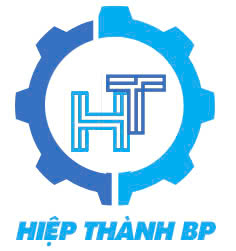Quan điểm này được Bộ trưởng Tài chính Nguyễn Văn Thắng nêu khi giải trình trước Quốc hội ngày 16/5, về dự thảo Nghị quyết một số cơ chế đặc biệt phát triển kinh tế tư nhân.
Việt Nam hiện có trên 5,2 triệu hộ kinh doanh, tạo ra 8-9 triệu việc làm, tương đương với khối công ty tư nhân, theo số liệu của Cục Thống kê các năm 2018-2020. Theo Nghị quyết 68 của Bộ Chính trị, Việt Nam đặt mục tiêu có 2 triệu doanh nghiệp vào 2030 và 3 triệu tới 2045.
Ông Trần Hoàng Ngân, Trợ lý Bí thư Thành ủy TP HCM tính toán hiện bình quân mỗi năm cả nước có thêm 30.000-40.000 doanh nghiệp. Vì thế, để đạt mục tiêu này ông Ngân nói cần có giải pháp đặc biệt, chính sách hỗ trợ cho hộ kinh doanh cá thể để chuyển sang loại hình doanh nghiệp.
Để 5,2 triệu hộ kinh doanh "lên đời" doanh nghiệp, theo dự thảo nghị quyết, hình thức thuế khoán với khu vực này sẽ được bỏ từ 1/1/2026. Việc bỏ thuế khoán này, Bộ trưởng Tài chính Nguyễn Văn Thắng cho rằng là chủ trương đúng đắn, nhằm minh bạch hóa hoạt động của hộ kinh doanh. Một trong số chính sách ban đầu được thiết kế là Nhà nước hỗ trợ chi phí thuê, mua phần mềm kế toán dùng chung để hộ kinh doanh sử dụng miễn phí.
"Chính phủ đã bàn rất kỹ giải pháp cụ thể, các chính sách ưu đãi lớn sẽ được thiết kế để khuyến khích hộ kinh doanh chuyển lên doanh nghiệp", Bộ trưởng Thắng khẳng định.

Bộ trưởng Tài chính Nguyễn Văn Thắng phát biểu tại phiên thảo luận dự thảo Nghị quyết cơ chế đặc biệt phát triển kinh tế tư nhân, ngày 16/5. Ảnh: Trung tâm báo chí Quốc hội
Khu vực kinh tế tư nhân, gồm hộ kinh doanh, hiện đóng góp khoảng 51% GDP và trên 30% ngân sách nhà nước.
Ông Thắng thông tin thêm Bộ này thí điểm việc bỏ thuế khoán với hộ kinh doanh tại một số địa bàn, và nhận thấy "chính sách này rất tốt, cần sớm được triển khai chính thức".
Bộ Tài chính cũng đang chuẩn bị các điều kiện, nhất là về công nghệ thông tin, chuyển đổi số trong lĩnh vực thuế như sử dụng hóa đơn điện tử khởi tạo từ máy tính để thu đúng, đủ và tiết kiệm thời gian, chi phí để các hộ kinh doanh kê khai nộp thuế khi bỏ thuế khoán.
triệu hộSố lượng hộ kinh doanh của Việt Nam(Giai đoạn 2011-2021)201120152019202020210123456VnExpress/Cục Thống kê2021● Hộ kinh doanh: 5,26
Hiện 3 loại thuế, phí các hộ, cá nhân kinh doanh phải đóng gồm lệ phí môn bài, thuế giá trị gia tăng (VAT) và thu nhập cá nhân. Ngoài ra, họ có thể phải nộp thuế bảo vệ môi trường, tài nguyên... nếu kinh doanh hàng hóa thuộc diện chịu thuế của các luật này. Theo quy định, mức lệ phí môn bài từ 300.000 đồng đến 1 triệu đồng tùy doanh thu, với hộ có thu trên 100 triệu đồng một năm. Họ cũng phải nộp thêm 1,5%, gồm 0,5% thuế thu nhập cá nhân và 1% VAT.
Bà Nguyễn Thị Việt Nga, Phó trưởng đoàn tỉnh Hải Dương góp ý bổ sung thêm mức hỗ trợ, tỷ lệ hỗ trợ kinh phí cụ thể của Nhà nước để mua, thuê các nền tảng số, phần mềm kế toán dùng chung cho hộ kinh doanh, doanh nghiệp nhỏ và siêu nhỏ.
Ngoài ra, Phó trưởng đoàn Thanh Hóa Mai Văn Hải gợi ý cần có thêm chính sách hỗ trợ đào tạo sử dụng các nền tảng số, phần mềm cho hộ kinh doanh khi họ kết nối, kê khai nộp thuế. Ông đề nghị lùi việc bỏ hình thức thuế khoán với hộ kinh doanh tới sau 1/7/2026 để cơ quan quản lý có thêm thời gian chuẩn bị kỹ hạ tầng.
Quốc hội sẽ biểu quyết, thông qua dự thảo nghị quyết này vào sáng 17/5.
Anh Minh
Nguồn: https://vnexpress.net/




